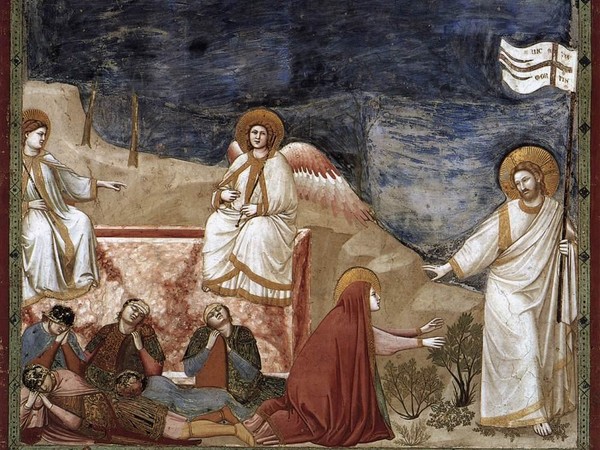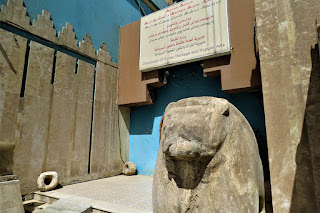By Crux
Claire Giangravè
A Chaldean archbishop kidnapped in Iraq by Al Qaeda militants in 2006
said that members of his religious minority, who were nearly
annihilated by Muslim extremists, have found a safer haven in the United
States and Canada compared to an increasingly more populist and
anti-immigrant Europe.
“The United States has been more helpful, because they gave economic
help and dioceses to Chaldean Catholics,” Archbishop Saad Sirop Hanna,
the Apostolic Visitor for Chaldeans Residing in Europe, told Crux in an interview.
He added that also in Canada members of his community have been warmly welcomed.
“The Europeans are always more worried,” he continued, pointing to
what he perceives as a worrying rise in populists and anti-immigration
sentiment on the continent.
The archbishop, who is also a visiting researcher at the Medieval
Institute of the University of Notre Dame, said that although he left
Baghdad in 2016, he hears reports that the American government has been
giving economic aid for the reconstruction of Christian areas in Iraq.
He also acknowledged that there have been several meetings between
members of the administration of U.S. President Donald Trump and Iraqi
bishops.
“I see that [Trump] is interested in religious minorities, and that his decisions also have a religious interest,” Hanna said.
The archbishop made his remarks during the presentation of his book Abducted in Iraq: A priest in Baghdad,
which took place at the Pontifical Gregorian University in Rome March
21. The book tells his account of the 28 days that he spent as a captive
of Al Qaeda militants.
Hanna was abducted on August 15, 2006, after he had celebrated Mass
for the Feast of the Assumption in Dora in southern Baghdad, known as
the “triangle of death” because of the Shiite, Sunni and terrorist
forces that clashed there.
When he was kidnapped, Hanna was kept blindfolded for most of the time and his captors forcefully tried to convert him to Islam.
“In captivity, I learned by talking to people how beautiful it is to
listen, because I could only recognize people by their voice,” he said
at the book presentation.
Despite his experience, the archbishop encouraged people not to look
at the Muslim extremists as “evil,” and said that in the book he
recounts his relationship with a guard in whom he found “great
goodness.”
He said that Islam today, which is struggling with its identity, can
draw great benefits if Christianity expresses itself with truth and
respect for its historic reality.
“Ignorance is in control of what is happening in the Arab world,”
Hanna said. “The majority of people don’t know the Koran. They are under
the influence of a strong opinion which impoverishes them to a behavior
where they are not asked to think. Perhaps we should reflect on how
these people can begin to see our faith in a different way.”
Father Kevin Flannery, professor of philosophy at the Gregorian and
once a teacher to Hanna, said that his former student “lived through an
incredibly brutal experience,” but nonetheless his book contains
“nuggets of wisdom,” which while they may appear simple at first, “if
one stops to think about it, their insight becomes evident.”
The book wants to explore not only Hanna’s experience as a “priest, a
Christian and an Iraqi,” but also the profound changes that have
impacted Iraq in the past 40 years and its effect on the religious
minorities living there.
“It’s a book that by drawing from my personal history wishes to show
what many of these Christians in Iraq have suffered, have done and have
endured,” Hanna said.
He added that his experience is hardly comparable to “many of my
brothers and sisters who have lived moments that were much more
difficult,” and added that for him picking up the dead bodies of
Christians killed for their faith was much more difficult and harrowing
than being kidnapped.
“We live under the pressure of the integralism and fundamentalism
that has invaded every sector of Iraqi society,” Hanna said. There has
been “a change that creates discomfort, persecution and
misunderstandings targeted toward the Christian community.”
According to recent reports, the Christian population in Iraq, which
was approximately between 1.4 and 2 million in the 1990s, has declined
to about 100,000 people in 2017 due to targeted persecution by Islamic
State militants starting as early as 2011 as well as immigration.
“Immigration is a worrying phenomenon that questions the future of
the Eastern Catholic churches,” said Slovak Archbishop Cyril Vasil’,
Secretary of the Congregation for Eastern Churches.
“Immigration is like a blood transfusion, which, if it doesn’t weaken
the original body, can enrich new places,” he added during the book
presentation.
“But sometimes it can become a hemorrhage that weakens the places of
origin and leads to an impoverishment of the body,” Cyril said.
He compared immigration to the ice which used to be brought down from
the top of the mountains to be stored during the summer. According to
Cyril, the Christian community in Iraq has managed to survive, “hidden
in the ice house,” until now, when the ice has been smashed and thrown
on the ground.
“What chance do these Christians have to survive?” he asked.
Hanna said that while immigration poses a significant challenge to
Christian realities in Iraq, the “broken ice is also a large mirror,”
which no matter where it’s placed, “will reflect the image that we wish
to show of our Church.”
“We are becoming a religion of diaspora,” the archbishop continued,
and “the faith during the diasporas is the most difficult.” He added
that some of the most beautiful passages of the Bible, such as the first
11 chapters of Genesis, were written during the diaspora in Babylon.
“I believe that the Church in diaspora produces beautiful things,”
Hanna said. “Perhaps even us as Chaldeans have to work hard on ourselves
and look at the future with hope and the determination that we must do
something.”




